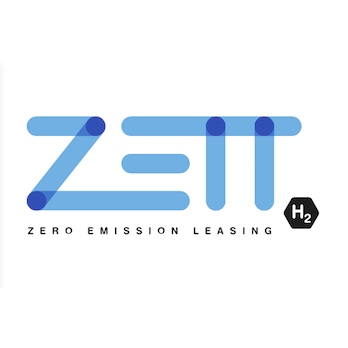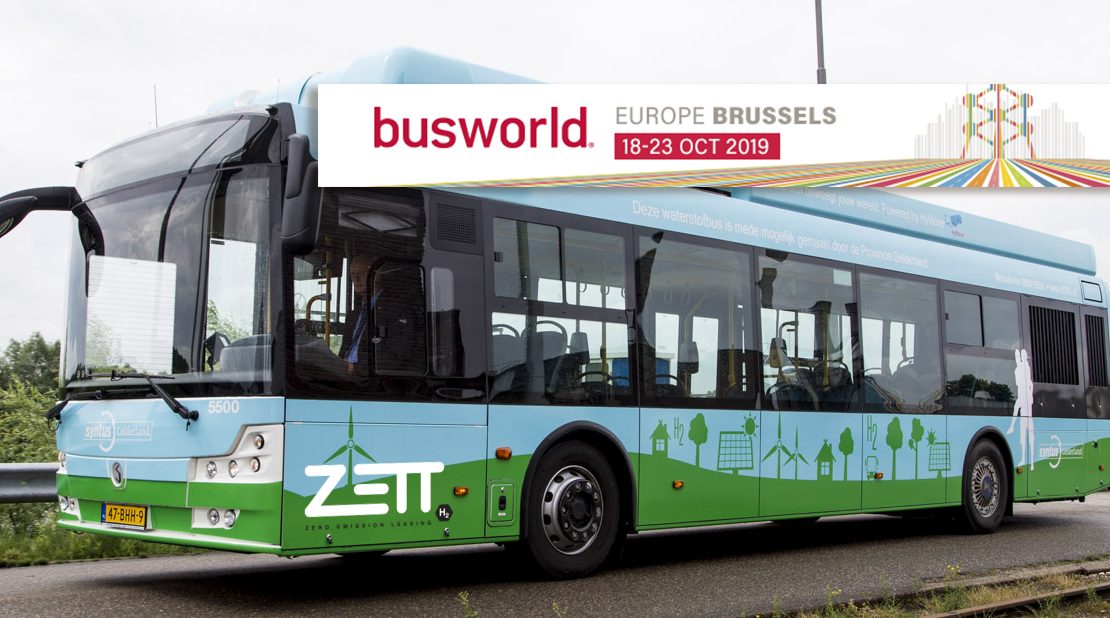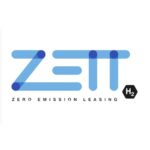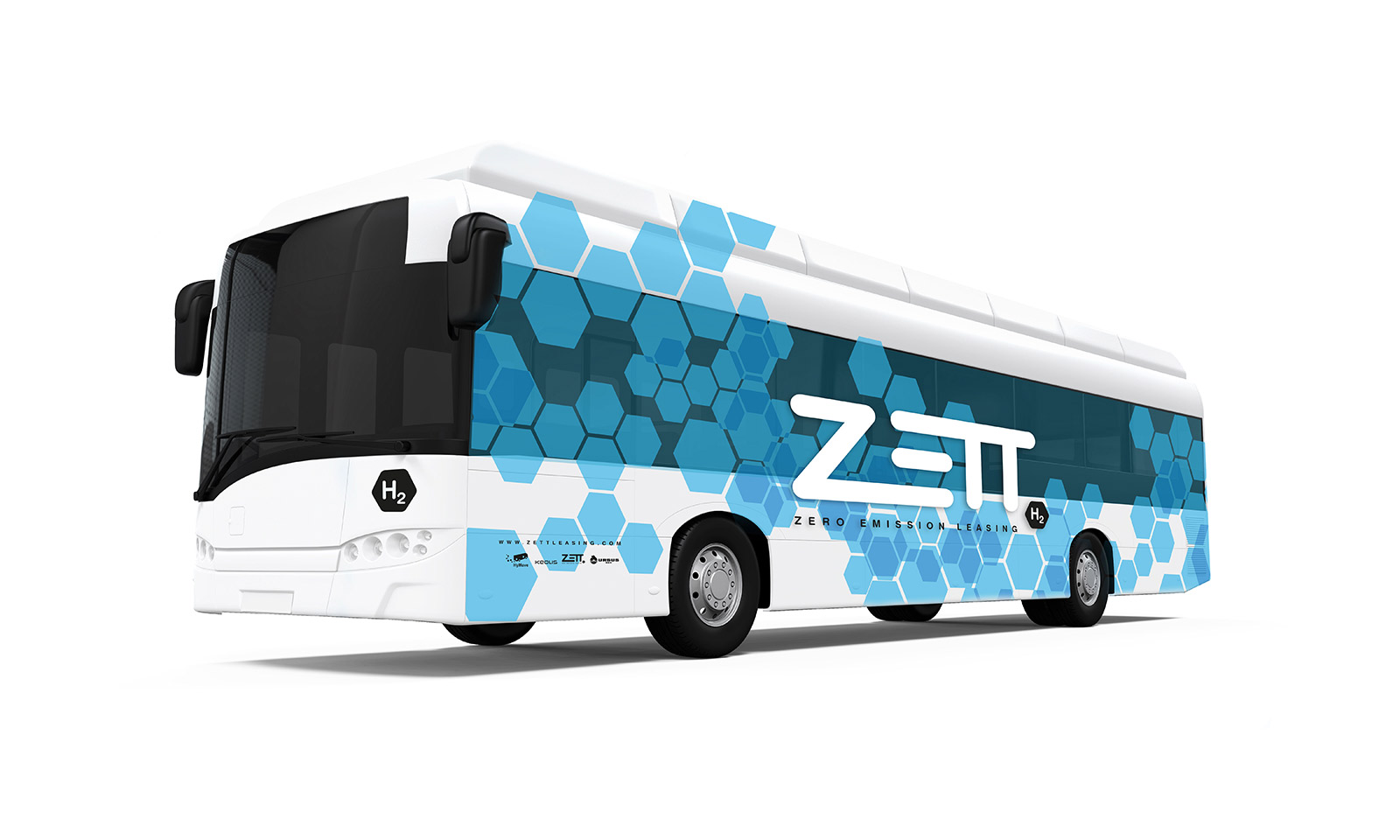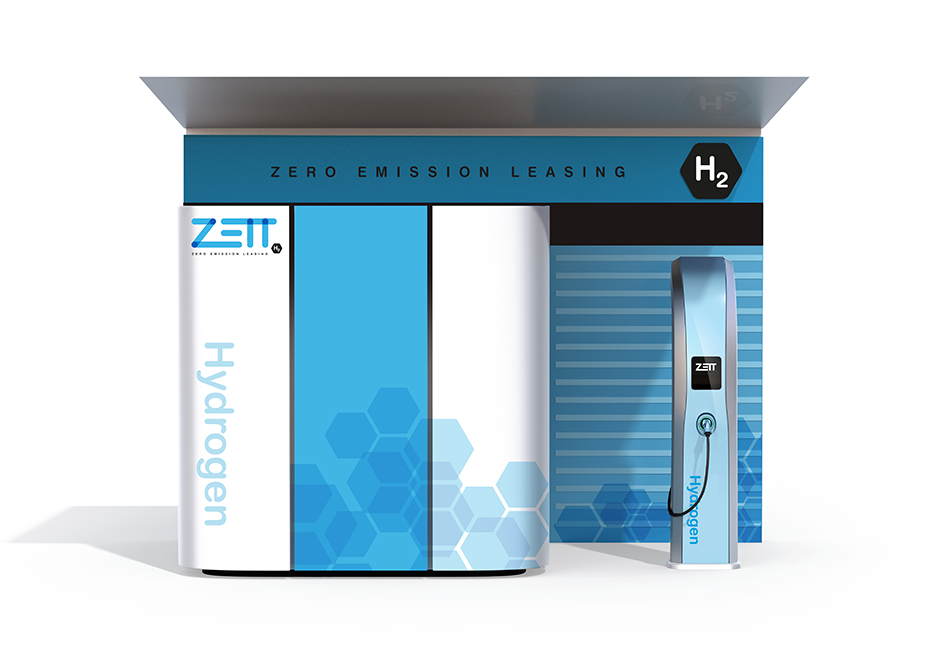Zero Emission Has Never Been So Obtainable with Hydrogen
We are an innovative leasing company for hydrogen passenger buses for the public transport sector.
About Zett
Emission-free public transport, that is the mission of Zett. We ensure that public transport companies can effortlessly make the transition to emission-free transport: 100% clean from well-to-wheel!
Zett has linked all parts of the value chain of ‘hydrogen-based zero emission’ public transport. With that, all 360˚ of the circle are connected. We guarantee affordable, reliable zero-emission public transport by bus!
Zett is an innovative leasing company, we do not rent buses, but deliver zero-emission kilometers for a fixed, all-inclusive price.
This price per kilometer includes all costs: hydrogen, financing & depreciation, maintenance, replacement. The price is fixed for the entire duration of the contract.
Our buses meet all the requirements of PTO’s: reliable, large range (400+ km per tank), comfortable, large passenger capacity, economically.
Zero worry for public transport, zero emissions by public transport.
- All-inclusive – Rent a hydrogen bus, at a fixed low price, in which all costs are included.
- Passenger bus – Our buses meet all the requirements of PTO’s: reliable, large range (400+ km per tank), comfortable, large passenger capacity.
- Hydrogen – Zett, together with its partners, produces green hydrogen with wind and solar energy. Hydrogen is always included in the lease rate.
- Hydrogen refilling station – Zett builds and maintains hydrogen filling stations and provides operational support. The provision of a tank installation is always included in the lease rate.
- Maintenance – All maintenance on the hydrogen buses is arranged by Zett in cooperation with the bus builder. Maintenance is always included in the lease rate. The same applies to maintenance on the filling station.
- Zett Zero – 100% green, 100% comfort, 100% safe, 100% service, 0% emission.
The Technique of Hydrogen Vehicles
When talking about hydrogen vehicles, it is about vehicles with an electric motor. The electric motor is powered by a Fuel Cell. A Fuel Cell is a device where gaseous hydrogen and oxygen enter and electricity and (a tiny bit) water comes out.
Hydrogen is made by splitting water with electricity. If this split happens with so-called “residual energy” from wind turbines or solar collectors, you speak of green hydrogen.
Hydrogen can also be made by so-called steam reforming, then natural gas is heated with very hot water vapor.
Advantages
Hydrogen buses are quiet, safe, quickly refueled and can travel just as far as buses with a traditional combustion engine. Precondition is good tank facilities are available. Zett takes care of this.
A common point of discussion is the efficiency of hydrogen vehicles especially compared to battery vehicles. There is still a lot of misunderstanding about this. In the figure below the efficiency of hydrogen vehicles is compared with other techniques.
If you start with the same amount of fuel at the source, ultimately the efficiency of a hydrogen vehicle is 40%. For a conventional car, this is only 20%. Nobody ever mentions this!
- 100% green
- 100% comfort
- 100% safe
- 100% service
- 0% emission
Solar and wind energy are green and sustainable but can not be stored in large quantities for a long period. Hydrogen makes this possible. The storage capacity of hydrogen is much greater and less expensive than that of batteries. This makes hydrogen a better energy carrier than electricity for the long distances driving.
To make a realistic cost comparison, between hydrogen and battery-electric buses, all aspects of bus operation have to be taken into account: energy consumption in winter, decreasing storage capacity of batteries over time, necessary interim replacement of batteries, charging time (in which the bus is out of service thus increasing personnel costs), flexibility, range. If you do, you will find that in most cases the hydrogen bus is the cheaper alternative!
Hydrogen is Safe
Hydrogen in gas form is non-toxic. It is non fragrant, color and tasteless. Unlike, for example, LPG, it is much lighter than ordinary air, so that it rises quickly. The auto-ignition temperature is much higher than, for example, for LPG, petrol or diesel. The risks in a vehicle fire with the last mentioned fuels are therefore higher than with hydrogen.
Worldwide, many millions of kilometers have been driven with hydrogen vehicles and a proportional number of refueling has taken place. All without incident.
For example, Mercedes has driven a total of 18 million kilometers in cars with fuel cell systems.
Three Mercedes B-class F-Cells drove a trip around the world without any problems (with the exception of a minor collision with a Lada in central Russia – but that was not due to the hydrogen!).
Zett Zero Leasing
Modern public transport goes much further than allowing one type of bus to travel back and forth on a fixed route. The most important task for public transport companies will be to sustainably support the mobility of the traveler. An optimal mix must be found of large-scale ‘peak demand’ for public transport between economic core areas, regional centers and cities and close-knit public transport in cities and flexible and demand-oriented transport.
The role of public transport companies will be that of the director of mobility of individual travelers: sometimes at lightning speed, very frequent and large-scale, sometimes on request and individually. Owning and maintaining assets is not necessary to fulfill this role properly.
Zett supports this transition by providing sustainable hydrogen buses, flexible deployment and reliability. We offer tailor-made solutions for public transport companies and take care of everything.

